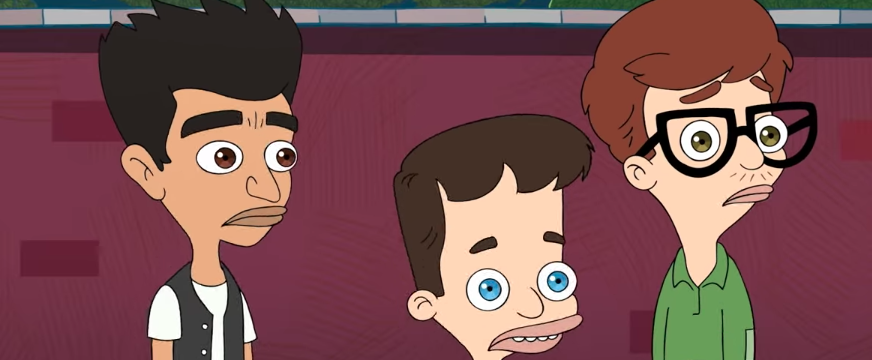Big Mouth’s sophomore season proves it’s the most relatable show on Netflix. Season two, which premiered Oct. 5, picks up right where season one left off: Jessi is running away with Jay, Andrew is coping with a growth spurt and Nick is struggling with his lack of puberty.
The show has always been unafraid to touch on the less-than-ideal side of puberty and coming of age. But season two is all about firsts — hooking up, experimenting with drugs and a whole lot more.
We’re introduced to new characters, such as the Voldemort-esque Shame Wizard, who convey the realities of aging. The Shame Wizard is a shrewd symbol of the anxiety inherent in all of us. He makes characters feel guilty not only for their irresponsible childhood moments, but also their natural tendencies. He represents the internal voice that ostracizes people because of their personal desires.
Don’t worry, the hormone monsters from season one (Maya Rudolph and Nick Kroll) are back with even smarter nonchalant one-liners than before. Toward the end of this season, viewers get an inside look into their lives. In a Monsters, Inc.-like fashion, we are given an understanding of the hardships the monsters face in trying to raise these kids through puberty. It’s a complex sequence that shows the multifaceted nature of puberty and shifts the audience’s perspective.
[Read more: Review: ‘Big Mouth’ is a hilarious flashback to pubescence]
In other animated comedies such as Family Guy or American Dad, the characters usually don’t change that much. By contrast, Big Mouth has plenty of character growth, both figurative and literal — we see them grow boobs and experience growth spurts, which is uncharted territory for them.
Season two is also about reality checks as much as it’s about new experiences. Sex-crazed Jay has his sexuality called into question when he experiments by kissing other boys. Rude, dramatic and flamboyant Matthew (Andrew Rannells) deals with a crisis in which he realizes he’s mean due to insecurities about his sexuality, so he tries being nice. The series confronts these serious and confusing issues through hilarious dialogue between Jay and his pillow.
[Read more: Review: ‘Disenchantment’ reimagines adult cartoons with depth and meaning]
It’s Big Mouth’s ability to balance this humor with sad, tender moments that makes it so great. In season two, Jessi struggles with behavioral problems, only to realize she’s depressed and in need of help. Big Mouth addresses depression in a natural and mature way. It shows Jessi weighing her options, her realization of these behavioral issues and her understanding of the necessity to seek help. The series also shows the hardships of divorce and the messy side effects our actions can have on loved ones.
Big Mouth’s ability to fluctuate between serious topics and hysterical mishap is one of its greatest strengths to date, and why it’s one of the best animated comedies out right now.




